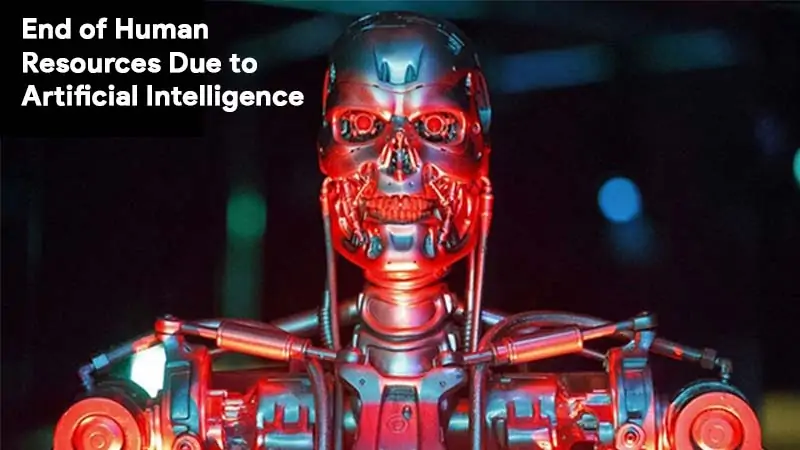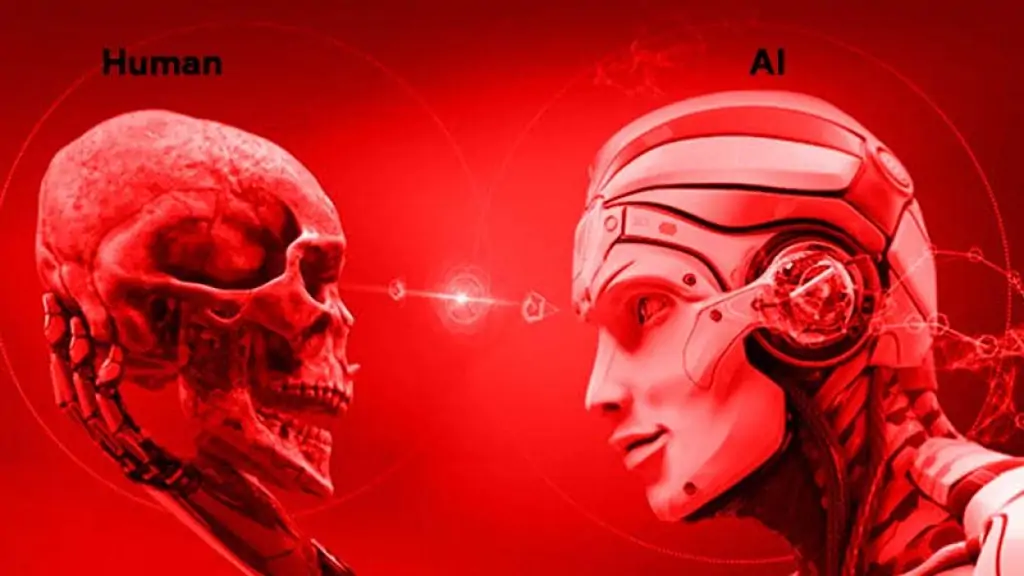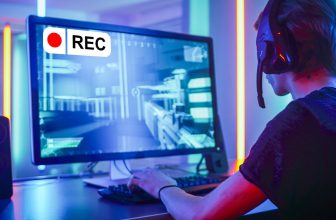Artificial Intelligence Will Kill Human Resources in Near Future.

Automation and artificial intelligence (AI) are rapidly changing the world we live in, and many are worried that robots are coming for our jobs. A growing number of people fear that robots and other artificial intelligence machines will steal so many jobs that it will lead to a future of pervasive unemployment.
Pessimists assume that workers will be largely replaced by robots or automation, or that they will face people competing for the few remaining jobs that require human skills. Human resources that require problem-solving are unlikely to be taken over by robots, as they remain in the human domain. [0, 3, 6]
People will lose their jobs due to AI-Automation
AI could then lead to certain jobs being lost to automation, but other jobs will be created that need to be filled. AI could then lead to certain jobs being lost due to automation, which creates other jobs that then need to be filled, and some of them being replaced. [10]
Also read | Artificial Intelligence (AI) – The Future of Web Development.
IT job sector will be affected most
In short, the idea that AI and other forms of automation will take jobs away from everyone is unjustified.
IT experts should focus on the types of jobs created by the advent of AI, rather than worrying about the loss of all jobs.
The jobs that AI will create will upset the people we believe will be eliminated by AI or automation, but not necessarily those people who are thought to be eliminated by the software itself. [7, 8]
Possible effects of AI on jobs, including new jobs requiring new AI-related skills and the categories of industries where AI is used.
Possible impacts on AI and jobs, including the types of jobs that AI will create, as well as new requirements for AI workplaces. Such as data processing, data analysis, or data analysis.
Potential effects on AI in jobs include new jobs requiring new AI-related skills. Possible impact on jobs: Possible impact on potential jobs needed by artificial intelligence. [8, 10]
While it is not true to say that AI will replace many jobs. It will take over many of the tasks that make up today’s jobs. It is now known that artificial intelligence will multiply human workers and, in some cases, destroy jobs once performed by humans.
The jobs created by artificial intelligence are just as important as the jobs they destroy.
Also read | What is Artificial Intelligence (AI).
Here are the five most important jobs that artificial intelligence will take over:
Number five is the work of people who devote their lives to neural networks. Such as computer vision and machine learning. [3, 5, 8, 13]
Job displacement caused by artificial intelligence will lead to mass unemployment in the United States, Europe, and other parts of the world, according to a new study. [Sources: 16]
History suggests that artificial intelligence will create higher-paying jobs, as predictions about human intelligence become increasingly automated. Embrace humanity, “we cry bull to bull, claiming that” AI “will create jobs for more than 1.5 million people in the US alone. [12, 14]
Impact of Artificial Intelligence on Humans:

Other reasons to be optimistic about the impact of artificial intelligence and automation go beyond net job creation. In particular, the impact of AI-based automation will be much greater than the non-artificial automation. That computers and robotics have enabled in the past.
This raises the question: How do human resources managers prepare for the impact of artificial intelligence and automation? Given that most experts believe that AI and automation will have a drastic impact on most, if not all, organizations, Dr. Rekart asked how they will affect their organizations over the next five years. [7, 11]
Also read | 6 Hidden Features of Google Maps You Need to Know.
Either way, there is no doubt that the impact of artificial intelligence will be huge, and it is vital to invest in the education and infrastructure needed to support people, as many of our current jobs are disappearing and we move into a new future. [11]
Human resources experts and companies that want to improve their hiring process are training them to use artificial intelligence to make their work easier.
AI-centric human resources (HR) and human-machine learning (H2C) will improve the ability of many human-led human resources teams to handle such things, as machines can crack millions of data points and learn in new ways.
The human touch will continue to be required. Which is crucial given the results AI can achieve in the area of human resources. [9, 15, 19]
Automation covers all processes discussed here, including machine learning, a subset of artificial intelligence (AI). [18]
Also read | 9 Eye-Catching Color Combinations for Display Advertisement.
Bottom Line
Many skills have been replaced in recent years by artificial intelligence, including skills needed to do human work.
This has led many to speculate that AI and AI-powered robots for all jobs – are coming. But the time is ripe for automation to automate non-routine work.
While A.I. will improve the workplace (think virtual assistants). Some people fear that it will also destroy jobs – and rightly so.
Artificial intelligence is becoming a threat to jobs. That were once human domain, making it harder for humans to stand up to machines. [2, 4, 7, 17]
Last year, Gallup, in collaboration with Northeastern, surveyed employees about their views on artificial intelligence and found that 70 percent believe that artificial intelligence will destroy more jobs than create them in the long run. [1]





